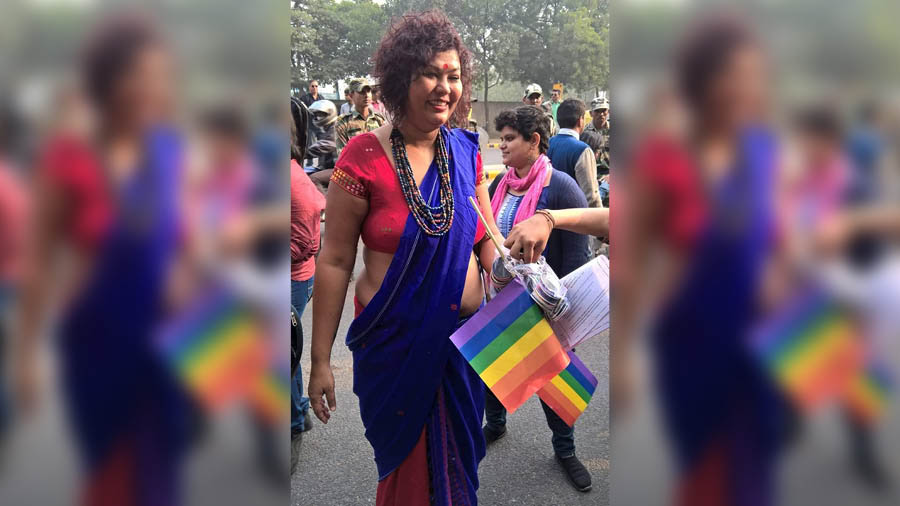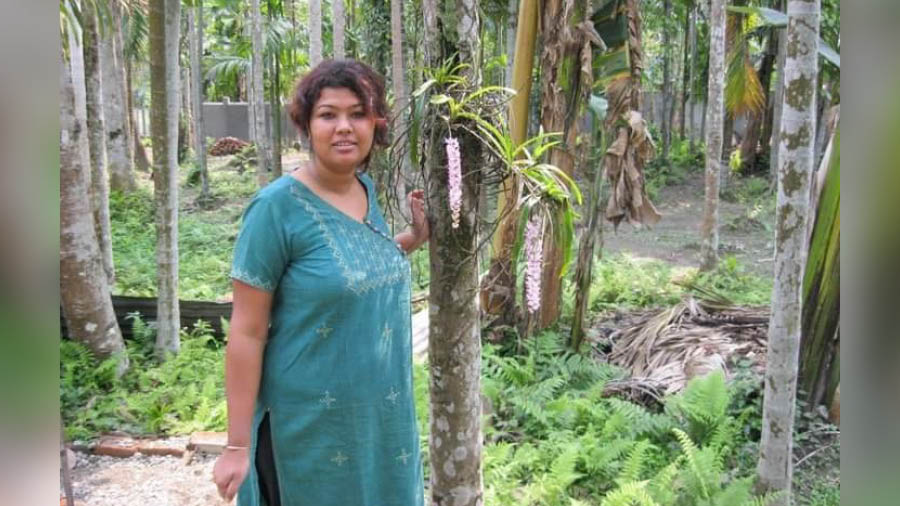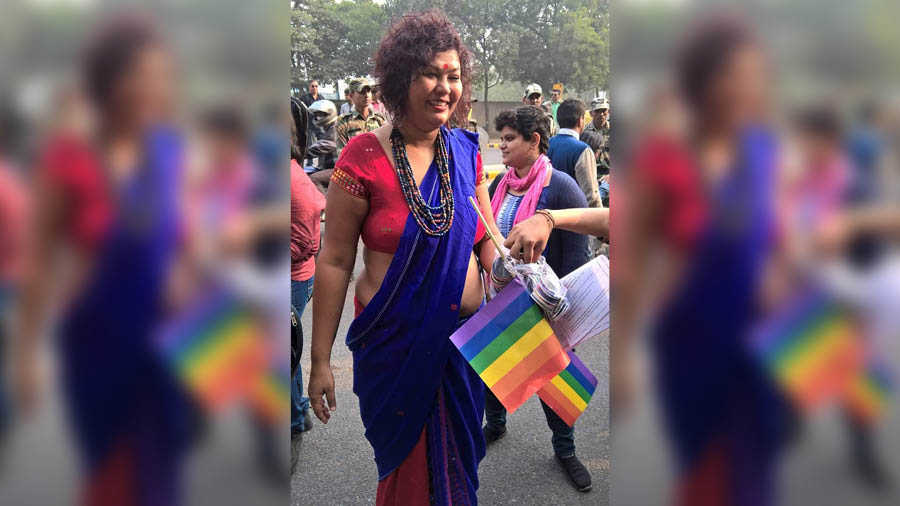
Rituparna Borah explores the nuances behind ‘Love is Love’
Borah spent eight years at Nirantar, working on issues of sexuality and gender. In 2014, she banded together with a colleague from Nirantar and a friend from Pride to start Nazariya, a queer feminist resource group. “Everywhere we went, we were always an add-on because we are queer women. If I was speaking on a panel about violence against women, people would see me and say that the panel had people and a lesbian woman. I became the ‘and’. However, our purpose remained to use our lived experiences to inspire mainstream movements which would change the discourse of family, love and intimacy.”
Rituparna in her village
This desire came because of a consensus over how family violence is the biggest crisis faced by the queer community. The realisation also drove Borah to add nuance to the dialogue surrounding same-sex marriage. “All the marriage petitions were put forth by upper-class people who were mostly gay men. Their narratives didn’t match ours. They constantly spoke about parental support, whereas we were victims of natal violence.” She adds that while marriage is a personal choice, for queer people, their chosen family is everything.
Their stance was backed by lawyer Vrinda Grover and Borah campaigned for a closed-group public hearing on family violence. About 32 queer women and trans persons testified that they had undergone this. “The report spoke about extreme forms of violence, admission to mental asylums, electric therapy, conversion therapy and even attempts to murder. There were also social layers to this, and the violence increased in case of interfaith or intercaste relationships.” She elaborates that the violence doesn’t even depend on the person being in a relationship. Even coming out can be enough.
For this, she argues that people should have the right to choose a family beyond the one they are born in. “You wouldn’t want to nominate an abusive parent for your property or life insurance right? I even picked this chosen family for succession over my partner, because they stood by me for 20 years. Jaya helped me buy a house, a car and was emotionally available when my father died. Just because she isn’t my sexual partner, does it make her less important than Amrita?”
She further argues that the idea of a chosen family is important for everyone, not just queers. “Everyone has the right to form a family by choice, irrespective of marriage. When your husband beats you, you can divorce him, but you can’t do that with your natal family. So many queer people left safe homes in Delhi, hoping to be accepted by their parents, only to return a month later.”
Rituparna during a Pride march
Borah feels that a lot of the younger queer community doesn’t fully understand the politics at play, safeguarded by their privilege. The biggest indicator of this is how many people in parades don’t wear masks, unlike most people during her youth. While she does find it encouraging, Borah takes it with a pinch of salt since she doesn’t find many working class people joining the movement. “A lot of youngsters see Pride as everything in life, but for us, we were a lot more beyond it. Our slogans used to be political, and we campaigned about the annihilation of caste, and police dominance. Today, it all boils down to ‘love is love’ and I don’t really enjoy going to Pride walks as much. People get up on trucks for demonstrations, which aren’t accessible to the disabled community, and most people dancing on it are from upper classes and castes. Today, I have a lot of privilege because I can easily tell everyone that I am a disabled, lesbian woman from an indigenous community. But when I was young, I couldn’t.”
This is precisely why Borah campaigns for going beyond tokenism, and asks for real reforms. The most important one, she feels, is diversity inclusion in workplaces. The goal is to allow diverse lived experiences to inspire the mainstream. “Love is Love’ can’t be seen in isolation. It comes with a lot of rights violations, sacrifices, violence, and caste hierarchy. People need to understand that our struggle goes way beyond who we love.”



